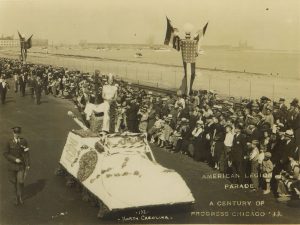“Back when he was a boy in Rocky Mount, North Carolina, Leonard would watch white teams play through a hole in the fence….
“There was no high school in Rocky Mount for blacks, so young Leonard shined shoes, until, like his father, he could become a railroad man. Only when he lost his job in the Depression did he turn to baseball to try to make a living. Soon he was playing for the famous Negro League champions, the Homestead Grays of Pittsburgh…”
— From “A Long Toss Back to the Heyday of Negro League Baseball” by Frank Deford in Smithsonian magazine (November 2013)
Leonard died less than three months after seeing his birthday celebrated by his hometown. Still around, however: Buck Leonard Boulevard, Buck Leonard Park, a Buck Leonard exhibit at the Imperial Centre and the Buck Leonard Association for Sports & Human Enrichment.



